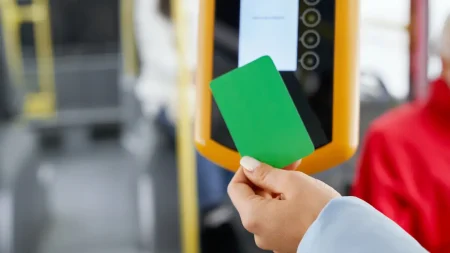In South Africa, access to justice is guaranteed by the constitution, but many people cannot afford private legal counsel. Legal Aid South Africa fills this gap by offering those who are financially eligible free legal counsel and representation.
A toll-free advice line, a network of local and provincial legal aid offices, or nearby university law clinics can all provide assistance to residents of Limpopo. This guide describes the work of Legal Aid South Africa, who is eligible, and how to get in touch with the office that is closest to you.
Understanding Legal Aid South Africa
Legal Aid South Africa is a public entity established under the Legal Aid South Africa Act 39 of 2014. Its purpose is to provide professional legal assistance to people who cannot afford private lawyers. It operates under the mandate of the Constitution, particularly section 35, which guarantees the right to legal representation at state expense when substantial injustice would otherwise occur.
What Legal Aid South Africa Does
Legal Aid South Africa provides:
- Criminal defence — representation for accused persons in criminal matters, from minor offences to serious crimes such as murder or robbery.
- Civil matters — help with cases like evictions, maintenance, domestic violence, labour disputes, or unfair dismissal.
- Family law — assistance with child custody, maintenance orders, divorce, guardianship, or domestic violence protection orders.
- Land and housing issues — support in eviction matters, restitution claims, and property disputes.
- Refugee and immigration matters — guidance for asylum seekers and non-citizens facing legal obstacles.
Its lawyers are qualified professionals working either as in-house practitioners or under the Judicare system, where Legal Aid appoints private attorneys to represent clients.
How Legal Aid Works in Limpopo
Legal Aid South Africa operates through a provincial office in Polokwane and several local offices in key towns such as Louis Trichardt, Polokwane, Tzaneen, and others. Each office serves surrounding municipalities, helping residents access justice close to home.
If you are unsure which office to contact, start with the Legal Aid Advice Line on 0800 110 110. This toll-free number connects you directly to trained legal advisors who can assess your issue and direct you to the correct office.
You can also send a free “Please-Call-Me” by dialling *120*664#, and a consultant will return your call.
Quick Contact Information
Toll-Free Advice Line: 0800 110 110
Please-Call-Me: 120664#
Website: www.legal-aid.co.za
Operating hours: Monday–Friday, 08:00 to 16:00
Use these channels if you need:
- Legal advice before visiting an office.
- Help locating the right office in Limpopo.
- Eligibility or means-test checks.
- Emergency advice if you or a family member has been arrested.
Legal Aid South Africa Offices in Limpopo
Below is the current list of Legal Aid offices serving the Limpopo province. These contact details are drawn from the official Legal Aid South Africa website.
| Office Name | Head of Office | Telephone | Fax | Physical Address | Postal Address |
|---|---|---|---|---|---|
| Provincial Office (Polokwane) | Ms Mpho Kgabi (Provincial Executive) | (015) 296 0117 | (015) 296 0102 | Located in Bendor Park area, Polokwane | PO Box 11237, Bendor Park, 0713 |
| Louis Trichardt (Makhado) | Mr Elton Makhadi | (015) 519 1100 | (015) 519 1103 | Noor Gardens, Cnr Krogh & Devenish Street, Louis Trichardt 0920 | PO Box 4591, Louis Trichardt 0920 |
| Modimolle | Not specified | Not specified | Not specified | Not specified | Not specified |
| Polokwane | Mr Thabo Ledwaba | (015) 291 2429 | (015) 295 4386 | Polokwane High Court, 3rd Floor, Cnr Bodenstein & Biccard Street, Polokwane 0700 | PO Box 1314, Polokwane 0700 |
| Tzaneen | Ms Tsakani Maluleke-Sihlangu | (015) 307 3129 | (015) 307 3113 | Office 220–237, Tzaneen Crossing Mall, 2nd Floor, Cnr Lydenburg & Skurving Street, Tzaneen | PO Box 2365, Tzaneen 0850 |
Notes:
- Contact the Provincial Office for updates about Modimolle and Thohoyandou.
- Satellite justice centres may operate in smaller towns such as Musina, Mokopane, and Lebowakgomo.
- University law clinics, like the University of Limpopo Legal Aid Clinic, also offer free legal services in certain matters.
For the most accurate and updated information, visit legal-aid.co.za/limpopo or use their interactive map at legal-aid.co.za/find-us.
Who Qualifies for Legal Aid
Legal Aid is designed for South Africans who cannot afford private lawyers. To qualify, you must meet two main criteria: the means test and the merits test.
1. The Means Test
This test assesses your financial situation. You will usually qualify if:
- You are unemployed, or
- You earn below the income threshold, which varies depending on whether you are single or have dependents.
You’ll be asked to provide proof of income such as:
- Recent payslips or unemployment documents.
- Proof of social grant or pension.
- Bank statements (if applicable).
- Identification document (ID) or passport.
Legal Aid may still assist in exceptional circumstances, even if you are slightly above the threshold, particularly in matters of public interest.
2. The Merits Test
Even if you meet the financial requirement, Legal Aid will evaluate whether your case has reasonable prospects of success. Cases with little legal merit may not qualify for full representation but may still receive legal advice.
3. Priority Groups
Legal Aid South Africa prioritises the following groups:
- Children and youth.
- Victims of gender-based violence.
- People with disabilities.
- Detainees and prisoners.
- Refugees and asylum seekers.
- The elderly or mentally ill.
If your matter falls within these categories, you will be given priority consideration.
Common Legal Issues in Limpopo
Limpopo’s diverse communities face a wide range of legal challenges. Legal Aid offices handle thousands of cases each year, many involving:
1. Criminal Matters
Residents charged with crimes have the constitutional right to legal representation. Legal Aid provides defence lawyers for accused persons, particularly where imprisonment is likely.
2. Family and Domestic Matters
Issues such as divorce, maintenance, child custody, and domestic violence protection orders are common. Legal Aid offers mediation and court representation for qualifying clients.
3. Housing and Land
Illegal evictions, land claims, and tenancy disputes are handled by Legal Aid’s civil units. These offices also help residents understand their rights under the Extension of Security of Tenure Act (ESTA) and Prevention of Illegal Eviction (PIE) Act.
4. Labour and Employment
Workers in Limpopo often face unfair dismissal or wage disputes. Legal Aid assists in cases where labour rights have been violated, especially for vulnerable employees.
5. Refugee and Immigration
The province’s proximity to international borders means many cases involve immigration detention or asylum matters. Legal Aid provides representation and interpreters for clients who meet qualifying conditions.
What to Bring When Visiting an Office
When you visit a Legal Aid office, carry the following documents to speed up your intake process:
- South African ID, passport, or refugee permit.
- Proof of income (recent payslip, grant letter, or UIF record).
- Proof of residence (municipal bill or letter).
- Court documents or police case number if already charged or involved in litigation.
- Relevant correspondence (letters, contracts, or eviction notices).
- Medical reports or affidavits for domestic violence or abuse matters.
If you don’t have all the documents, go to your nearest office anyway. The staff can help you obtain or verify missing information.
How to Access Legal Aid Services if You Can’t Travel
Not everyone can travel to a town or city where Legal Aid has offices. Fortunately, there are several ways to reach assistance remotely:
1. Toll-Free Advice Line (0800 110 110)
You can call from any phone in South Africa without airtime charges. Trained legal advisors will:
- Assess your issue.
- Offer legal information or guidance.
- Refer you to the nearest local office if representation is required.
2. Please-Call-Me Service (*120*664#)
If you don’t have airtime, dial the short code and select the option to receive a callback.
3. Online Assistance
Visit www.legal-aid.co.za and click “Contact Us” or “Find Us” to locate offices by province. You can also read educational resources on labour, housing, and family law.
Step-by-Step: Opening a Legal Aid File
Here’s what to expect once you start the process:
- Initial Contact
Call, send a Please-Call-Me, or visit the office for an intake interview. - Information Gathering
A paralegal or intake officer records your personal details, income information, and case summary. - Means and Merits Testing
Your financial eligibility is assessed, and the legal merits of your matter are reviewed. - File Opening and Allocation
If approved, your file is opened and assigned to a Legal Aid attorney or, if necessary, to a private lawyer through the Judicare system. - Representation
You will be represented in court or assisted in mediation, depending on your matter. - Follow-Up and Case Updates
Legal Aid staff keep you informed of progress. Always update them if your contact details change.
Rights and Responsibilities of Legal Aid Clients
Legal Aid South Africa upholds professional legal ethics and expects clients to do the same. Remember these key points:
- Be honest about your income and personal details.
- Attend all scheduled meetings and court appearances.
- Co-operate fully with your lawyer and follow legal advice.
- Notify the office if you change your address or contact number.
- If you’re unhappy with service, lodge a complaint through the Provincial Office or email info@legal-aid.co.za.
How to Stay Updated
Legal Aid South Africa frequently updates contact details and eligibility criteria. To stay current:
- Visit www.legal-aid.co.za
- Follow Legal Aid South Africa on:
- Facebook: facebook.com/LegalAidSouthAfrica
- Twitter/X: @LegalAidSA1
- Email: info@legal-aid.co.za
Helpful External Contacts
| Service | Contact Details |
|---|---|
| SAPS Emergency | 10111 |
| Gender-Based Violence Command Centre | 0800 428 428 or 1207867# |
| Childline South Africa | 0800 055 555 |
| Legal Aid Fraud & Ethics Hotline | 0800 153 728 |
| Department of Justice Customer Service | 0800 002 000 |
Read more: Legal Aid South Africa: Services & Support Guide 2025
Frequently Asked Questions (FAQs)
1. Is Legal Aid free?
Yes. Legal Aid South Africa provides free legal services to qualifying individuals based on financial need and the merits of the case.
2. Can I get Legal Aid if I work?
You might still qualify if your income is below the prescribed limit or if your case involves the protection of fundamental rights.
3. Does Legal Aid handle divorce and maintenance cases?
Yes. Family law matters such as maintenance, custody, and divorce are handled by Legal Aid lawyers or paralegals.
4. What if I am in jail and need a lawyer?
Every accused person facing serious charges is entitled to representation. Inform the court that you wish to apply for Legal Aid; they will contact the nearest office.
5. Are services available in local languages?
Yes. Legal Aid South Africa accommodates clients in Sepedi, Tshivenda, Xitsonga, and English.
6. Can Legal Aid help with housing and eviction issues?
Yes. Legal Aid assists tenants and occupiers in housing matters, including unlawful evictions.
7. How long does it take to get a lawyer?
Timeframes vary, but urgent matters like bail or imminent court appearances are prioritised.
8. What happens if my case is refused?
If your application is declined, you can appeal through the Provincial Executive Office in Polokwane.
9. Can Legal Aid represent me at the CCMA or in a labour dispute?
Yes. Legal Aid can assist in cases of unfair dismissal or unpaid wages, particularly when your employment rights have been violated and you meet the financial qualification criteria.
10. Does Legal Aid assist foreign nationals or asylum seekers?
Yes. Legal Aid provides help to refugees and asylum seekers facing legal issues such as documentation, detention, or unfair treatment under immigration laws, provided the matter falls within its mandate.
Final Thoughts
Legal Aid South Africa is a lifeline for justice, not just a government program. Legal assistance is available whether you reside in Louis Trichardt, Polokwane, or Tzaneen.
Don’t delay if you or someone you know is having legal difficulties. Use the Please-Call-Me service, call 0800 110 110, or stop by the Legal Aid office that is closest to you.










